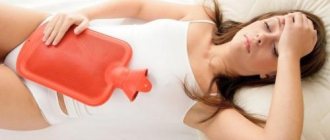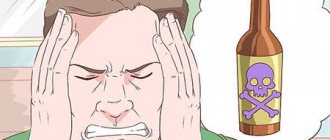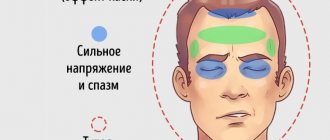Voice, Editor Marie Smith March 14, 2020 2827 We recently wrote about how bad whining is. What if whining is not a simple whim, but a real symptom? I want to tell you my story and, of course, from my bell tower, talk about anxiety disorders, panic attacks and depression.
Important: There is nothing scary in this article. Here is a solution to the problem. I specifically tried to remove all the unpleasant details so as not to scare anyone.
I've never had nerves of steel. It happens. Some people are born more stable, others less so. Resentment, tears - this is probably normal for a small child, especially a girl (at least girls are not forbidden to cry). Fortunately, deep downs alternated with equally bright ups, and my impressionability and emotionality often even helped me. I wrote music, poetry, painted, immersed myself in feelings and was inspired by people, events, and travel. I felt alive. I gave 200% to what I loved. I could not sleep, not eat, and create, create. In general, nothing supernatural, you might think. Typical "creative" child.
Everyone has similar stories
I had a stressful time. I worked a lot, worried a lot and was too demanding of myself. I cried a lot. Probably every day. The situations seemed hopeless, the responsibility overwhelming. It was stressful.
I never trusted psychologists and other “think-mongers”. I refused on principle any sedatives: it seemed to me that everything was poison that only clouded my mind.
In general, I held out until one “fine day” I started having panic attacks. This has never happened to anyone in my family or anyone I know before. At first I decided that I had developed some kind of phobia. This affected my life a little, but I thought that if I avoid certain things, then, in principle, this will not particularly interfere with my life. Before I had time to come to terms with this diagnosis, my fears began to increase.
How to help yourself?
A person who often has panic attacks, first of all, needs to understand the following: in order to prevent depression from occurring, you need to get rid of the anxiety attacks themselves. Self-help may include the following:
- taking mild sedatives (Persen, Afobazol, Novopassit, Valerian, Motherwort) or herbal teas;
- performing breathing exercises;
- the use of meditation, autogenic training;
- use of massage.
In addition, warm, relaxing baths, contrast showers, exercise, and sports (for example, jogging or swimming) can help. Any of the listed methods may be effective, but it should be remembered that such methods of solving the problem are only suitable for untreated cases.
Only a psychotherapist can cope with severe anxiety attacks or serious depression after panic attacks. During the sessions, the specialist will help the “alarmist” understand the reasons for the deterioration of his condition, change negative mindsets and aim for positive changes. The patient will also be prescribed medication with strong drugs (antidepressants and tranquilizers). It is strictly prohibited to use such medications without a prescription.
During the treatment period, the patient must give up bad habits, avoid stressful situations if possible, and strictly follow all the doctor’s recommendations. Uncontrolled use of strong medications can lead to unpredictable consequences and significant deterioration of the condition.
Also, all “alarmists” need to remember: under no circumstances should they put off solving the problem “for later.” You can get rid of depression and panic attacks, and in order for positive changes to come faster, you should pay attention to your health as soon as undesirable signs make themselves felt. Very often, it is ignoring the problem that leads to the emergence of other, more dangerous manifestations, and the recovery process is delayed for a long time.
What is a panic attack?
A panic attack is an unjustified, illogical fear.
You begin to fear what seems stupid to fear. But at the same time, it is very difficult to overcome. Your palms become sweaty, your pulse quickens, you want to climb the wall and scream for help. Places where PAs occurred become unique triggers. People begin to avoid them, thus running away from their fears. If you have not experienced something like this, then this may seem stupid to you, but a lot of people suffer from PA (I learned this a little later, of course). Panic attacks interfere with life and interfere with work. If you don’t understand what’s happening to you, then it just drives you crazy and horrifies.
I struggled with myself, I was simply writhing, I didn’t sleep, I didn’t eat, I was just ready to come to terms with the fact that everything, write, was “disappeared.” It sounds stupid now, but when you literally go crazy, it’s no time for jokes.
When I went to the doctor (it would be more correct to say when I was driven to the doctor), the doctor told me that this could be treated: attention!!! antidepressants .
Can you imagine what it was like for me, a person who had dodged valerian, to accept that I needed to drink them? I thought that this was akin to a lobotomy, that I would never be the same again, and that, God forbid, I would become addicted. In general, I fought with myself to the last.
Symptoms and signs of panic neurosis
Signs of panic neurosis are systematic panic attacks, which are manifested by a number of psycho-emotional and physiological symptoms.
The first and main symptom is an unreasonable and uncontrollable feeling of fear: from slight anxiety to panic fear of dying here and now. At the mental level, a symptom of panic disorder is also obsessive thoughts with which a person can drive himself to the brink of “madness.” For example, as the attack progresses, the patient may constantly and uncontrollably stress himself out, thinking that he cannot influence the current situation in any way, that he is at a dead end, or thinking that right now he will die of a heart attack or go crazy. However, this does not happen, but the situation repeats itself every time.
Physiological symptoms of panic attacks and cardiac neurosis: rapid heartbeat, feeling of lack of air, muscle tension, headache, pounding in the ears, chills, trembling, sweating, nausea, diarrhea.
Attacks can last from several minutes to an hour, and can be repeated every day or once a month - everything is very individual and depends on the degree of neglect of the autonomic disorder.
Patients with such symptoms, as a rule, go to all the doctors and take all the tests, but no problems related to the functioning of the internal organs are found. Ultimately, a neurologist or psychiatrist diagnoses them with “vegetative-vascular dystonia”, “panic neurosis” or “heart neurosis”.
What are antidepressants?
It's not actually poison. It's not a lobotomy, and it's not scary at all. Doctors call them complexly - serotonin reuptake inhibitors. There is such a hormone of joy - serotonin - and sometimes, for completely different reasons, it may begin to be produced by the body not as well as before. And then, as was the case in my case, the body can begin to stimulate itself, causing surges of adrenaline, and with it serotonin (yes, it is also produced during panic, oddly enough). Of course, I’m not a doctor, so I’m only telling you my theory of what happened to me.
With depression, for example, we are also faced with a disturbance in the exchange of neurotransmitters (serotonin, dopamine, norepinephrine). It is very important to understand that depression is not temporary stress, not whims or a desire to whine. If you know people who have been depressed for a long time, take care of them. If you are depressed, then you simply physically cannot “score” and “switch.” This cannot be solved either by chocolates or by shopping. A person who suffers from this disease is at the very bottom. Help him get out, because most likely he cannot do this on his own.
This whole terrible story happened to me 2.5 years ago. It took me about 2 years to stop being afraid. Now I’m little by little starting to do what I was afraid of, but I understand that it’s better not to rush in this matter. But most importantly, I believe and know that everything will pass.
And finally, a few tips:
Keep your balance. Only now do I understand how good it is when “everything is fine.” There is no need to loosen the swing out of the blue. Don't throw yourself off balance. Be careful! Get more rest. You just need to learn to say “no.” Sometimes, unfortunately, you have to give up something. Remember: your health is much more valuable than any money. Take care of yourself! Appreciate those around you. I am so grateful to everyone who was not afraid of my condition, who was there and who led me forward. It was a very difficult test. But it helped me look at everything that surrounded me with different eyes.
Be happy, help each other, love each other! Your “experienced” Red lips journal was with you! Till tomorrow!
Photos by @beigerenegade










